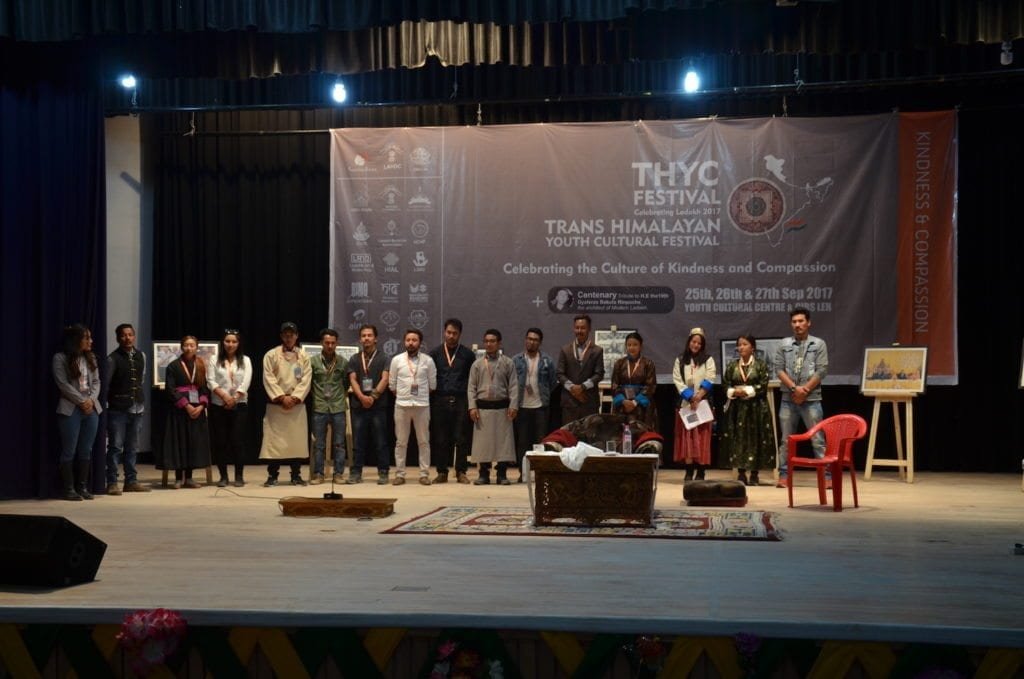
FLOWERING DHARMA CENTER ORGANISES THREE DAYS “TRANS HIMALAYAN YOUTH CULTURAL FESTIVAL in Collaboration of Ladakh Autonomous Hills Development Council & Central Institute for Buddhist Studies – Leh ”

With the main theme as “culture of Kindness and Compassion”, Trans Himalayan Youth Cultural Festival was celebrated by the Flowering Dharma with support from Ladakh Autonomous Hill Development Council and Central Institute of Buddhist Studies from 25th-27th September at Youth Cultural Centre, Raku House and CIBS
On the first day of the THYC Festival a Painting & Elocution Competition was organized with the participation of students from nine different schools from Leh.

There were sixty students taking part in the painting competition, on the topic- ‘Kindness & Compassion’ with the winners being, SkarmaDzakhm from JNV Leh, JigmetMingyur from Druk Padma Karpo, Padma Chosen from Islamia Public School.

Elocution was conducted in Ladakhi, Hindi & English language. The topics were: ‘Kindness & Compassion: Capsule of Happiness’ & ‘Role of youth in shaping Culture’. There were seventeen participants and the winners were SonamAngmo & Thinness Dolkar from Mahabodhi School, Sankey Dolma from SOS (TCV) Ladakh, &RigzinDorjey from JNV Leh.

The painting competition was judged by Mr. Rinchen Dorjey Chamspa and the elocution competition by Mr. Abdul Ghani Sheikh. Meanwhile there was a steady inflow of visitors, who were given the tour of the Raku House.
The Youth Cultural Centre was also officially inaugurated by Ms. Anvy Lavasa, Deputy Commissioner, Leh at 3:00pm.She also addressed the media after having a discussion with the students on Culture of Kindness & Compassion.

Kesar Saga, a narrative by Padmashri Shri Morup Namgyal & His daughter Ms. Chorol Padmashri Shri MorupNamgyal, is a renowned folklorist of Ladakh was invited to present an musical narrative of the life of the legendary Warrior King- Kesar. He was assisted by his daughter in the narration.
For all three days- there was an ongoing photo-exhibition on the life & centenary of H.E. 19th Bakula Rinpoche.
It also had also installed stalls, showcasing the products of PAGIR, De-Kaniz Creation, Cashmere and Yak & The Riders Cafe Ladakh.
The first half of the second day included the visit from the Councilors of different regions & various other local & foreign guests, who were welcomed with giving a tour of the Raku House.
At 3:00 pm in the evening, we had a skit performed by the students CIBS Leh, on the subject of kindness & compassion. It was followed by a cultural performance by the Ladakh Art and Culture Society, volunteers & executives of the THYC festival.

The third & the final day of the festival was graced by the presence of Ven. Geshe Nawang Samten la.
Ven. Geshe Nawang Samten la is the Vice Chancellor of the Central University of Tibetan Studies, Sarnath. He is also the first and only recipient of Padma Shree Award amongst the Tibetan Community.
The last day of the festival started with a close round table conference, in which the participants were Ven. Geshe Nawang Samten la, Vice Chancellor, CUTS, Mr. Sonam Wangchuk, SECMOL, Mr. Nawang Rigzin Jora, Hon’ble MLA Leh & the executive members of Flowering Dharma. Geshe la lead the discussion on the Importance of Nalanda Tradition in Modern Times & Mr. Sonam Wangchuk presented his talk on the subject of Role of youth in shaping culture and bridging Himalayas, while Mr. Nawang Rigzin Jora spoke about the Role of politics.

The successful morning session was followed a lecture session by Geshe Nawang Samten la, The venue was the Central Institute of Buddhist Studies & the topic of the session was ‘Importance of Culture of Kindness & Compassion’.
Geshe la started the session by putting forth his opinion about how culture is not only something we can relate in the forms of artefacts, monasteries, temples, rituals etc., which are simply the external manifestation of the culture. It is the responsibility of the people belonging to different cultural groups to explore & imbibe the core elements of their own culture, e.g. for the people belonging to the Himalayan Regions like Ladakh, Arunachal Pradesh, Nepal, Sikkim etc. the rich Nalanda tradition is the actual core element of the culture.

He stated, how at the time of the Buddha Shakyamuni, the most prominent religion was the Vedic system, which primarily focused on rites & rituals & even sacrificing living beings. The Buddha Shakyamunirevolutionised the whole spiritual system,with respect to philosophy & practice. The teachings he brought on impermanence & the concept of emptiness, were challenged by many, then. Often there used to happen intense discussion sessions on these philosophical stances between the scholars of different philosophical schools. The receptive nature of the participants would often lead to very fruitful discussions.
With the advent of science, these theories of impermanence, dependent origination & emptiness are found to have many points of convergence with science in general & quantum physics in particular.

He explained how the Mahayana teaching has two main component – Wisdom & Method, with Compassion being the main component of Method.
Compassion should not be misunderstood as the feeling of loving-kindness that we have just towards our family & friends. This kind of kindness is tinged with attachment & therefore is very limited. Compassion is when you relate with the suffering of others in the most genuine way, when you commit yourself wholeheartedly into alleviating their pain. It is all about changing your perspective of the world.

He mentioned how the cause of all our misery is ignorance, which is the play of the negative forces when we are not being able to see the reality as it is.
He explained how modern science & Buddhist theories are reaching a consensus on many subjects. Many renowned neuroscientists these days, after thorough research & conducting experiments, are agreeing with Buddhist ideas that mind has a major role to play in the physiological system. There are many types of meditation, the practicing of which are found to have ground breaking results in recovering from many kind of ailments. Not only the scientists but the people belonging to corporate sectors, are also finding the relevance of buddhist ideas important, as now a days, the emotional intelligence quotient is a major factor of selection in the corporate world.
Geshe la ended the session with stressing of the importance of not only identifying but embodying the culture of compassion & start with being an example for others in our community.

The festival concluded with the Vote of Thanks by Mr. Tashi Namgyal, Director,Flowering Dharma. In his speech, he thanked Ven. Geshe Nawang Samten (CUTS), Dr Sonam Dawa Lonpa (LAHDC),Mr. Thupstan Chhewang ( Hon’ble M.P) Mr. Rigzin Spalgon, K.A.S (Municipal Committee), Mr. Sonam Wangchuk (SECMOL) among others.







One Comment
Création de compte Binance
Thanks for sharing. I read many of your blog posts, cool, your blog is very good. https://accounts.binance.info/es/register-person?ref=RQUR4BEO